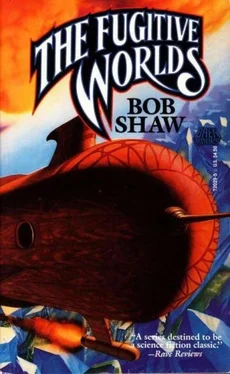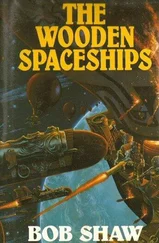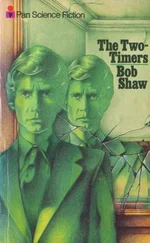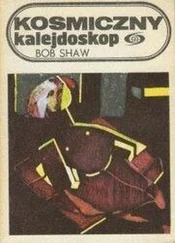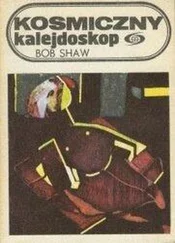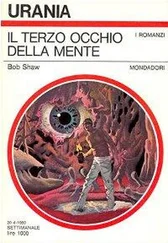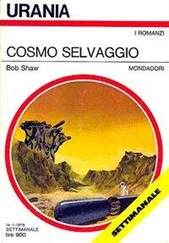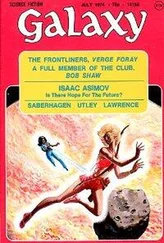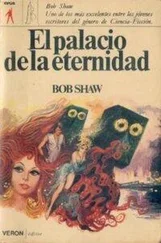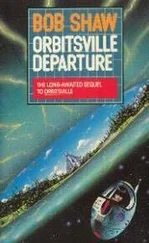Bob Shaw - The Fugitive Worlds
Здесь есть возможность читать онлайн «Bob Shaw - The Fugitive Worlds» весь текст электронной книги совершенно бесплатно (целиком полную версию без сокращений). В некоторых случаях можно слушать аудио, скачать через торрент в формате fb2 и присутствует краткое содержание. Год выпуска: 1990, ISBN: 1990, Издательство: Baen Books, Жанр: Фантастика и фэнтези, на английском языке. Описание произведения, (предисловие) а так же отзывы посетителей доступны на портале библиотеки ЛибКат.
- Название:The Fugitive Worlds
- Автор:
- Издательство:Baen Books
- Жанр:
- Год:1990
- ISBN:0-671-72029-5
- Рейтинг книги:3 / 5. Голосов: 1
-
Избранное:Добавить в избранное
- Отзывы:
-
Ваша оценка:
- 60
- 1
- 2
- 3
- 4
- 5
The Fugitive Worlds: краткое содержание, описание и аннотация
Предлагаем к чтению аннотацию, описание, краткое содержание или предисловие (зависит от того, что написал сам автор книги «The Fugitive Worlds»). Если вы не нашли необходимую информацию о книге — напишите в комментариях, мы постараемся отыскать её.
The Fugitive Worlds — читать онлайн бесплатно полную книгу (весь текст) целиком
Ниже представлен текст книги, разбитый по страницам. Система сохранения места последней прочитанной страницы, позволяет с удобством читать онлайн бесплатно книгу «The Fugitive Worlds», без необходимости каждый раз заново искать на чём Вы остановились. Поставьте закладку, и сможете в любой момент перейти на страницу, на которой закончили чтение.
Интервал:
Закладка:
Now he was lying in darkness in his room, which was part of the quarters which had once housed the guard of the Great Palace, and was quite unable to sleep. He had never been given over to introspection and soul-searching, but he understood very well that his tiredness was not physical in its origins. It was a mental tiredness, a psychic fatigue induced by a long period of doing that for which he had no taste, of going against his own nature.
Before leaving home he had visualized Land as one vast charnel house, and the reality of it had more than conformed to his expectations, culminating in the grisly find at the Styvee pumping station. Perhaps he was being self-indulgent. Perhaps—as one born into a privileged position in society—he was having his first taste of what life must be like for a common man who was forced to spend all his days in a kind of toil he detested and which had been forced on him from above. Toller tried reminding himself that his grandfather, that other Toller Maraquine, would not have allowed his composure to be so quickly disturbed. No matter what fearful sights and experiences the real Toller Maraquine had had to contend with he would have deflected the force of them with his shield of toughness and self-sufficiency. But… but…
How do I find room inside my head for twenty skeletons neatly ranged against a wall, with another twenty skeletons curled up inside them in the pelvic cradles? Another twenty-one skeletons, I should have said. Didn’t you notice that one of the women was having twins? What are you supposed to do about two little manikins, with whitened twigs in place of bones, who kept each other company in death instead of life?
An extra-loud burst of laughter from somewhere in the palace grounds brought Toller to his feet, swearing in exasperation. Men and women were getting drunk out there, getting themselves into a state in which they could exchange handshakes with skeletons, return the grins of skeletons, and pat unborn babies on their still-bifurcated craniums. It came to Toller that his only prospect of sleep that night lay in dosing himself with large quantities of alcohol.
Welcoming the positive decision, his inner tiredness abating slightly, Toller pulled on some clothes and left the room. Finding his way through unfamiliar corridors with some difficulty, he reached the garden on the north side of the grounds which was the center of the festivities. It had been chosen because it was mostly paved and therefore had stood up to decades of neglect better than the others. Even the parade ground at the rear of the palace was waist-high in grass and weeds. Several small fires had been lit in the garden, their orange-and-yellow rays partially obscured and softly reflected by ornamental fountains, statues and shrubs, making the place look much larger than it did in daylight.
Couples and small groups strolled through the spangled dimness, while others stood near the long table which had been set up for refreshments. Males outnumbered females by about three to one on the expedition, which meant that women who were in the opposite mood that night were enjoying a surfeit of romantic attention, while males who were redundant in such respects were concentrating on food, drink, song and the telling of bawdy stories.
Toller found Commissioner Kettoran and his secretary, Parlo Wotoorb, standing behind the table serving food and drink. The two old men were obviously enjoying the menial task, proving to all of the company that in spite of their exalted rank they still possessed the common touch.
“Welcome, welcome, welcome,” Kettoran called out when he espied Toller approaching. “Come and have a drink with us, young Maraquine.”
Toller thought that the commissioner was slightly overplaying his role—perhaps afraid of somebody missing the point—but it was a harmless enough foible, not one he found objectionable. “Thank you—I’ll have a very large beaker of Kailian black.”
Kettoran shook his head. “No wine. No ale either, for that matter. A question of useful payload on the ships, you see—you will have to settle for brandy.”
“Brandy it is then.”
“I’ll let you have some of the good stuff, in one of my best glasses.”
The commissioner sank down to his knees behind the table and a moment later stood up with a glittering crystal filled to the brim. He was handing the glass over when the jovial expression abruptly departed his face and was replaced by one of mingled surprise and pain. Toller took the glass quickly and watched with some concern as Kettoran pressed both forearms against his lower ribcage.
“Trye, are you unwell?” Wotoorb said anxiously. “I told you ‘you should take more rest.’ ”
Kettoran inclined his head briefly towards the secretary, then winked knowingly at Toller. “This old fool thinks he is going to live longer than I am.” He smiled, apparently no longer in distress, picked up his own glass and raised it to Toller. “1 bid you good health, young Maraquine.”
“Good health to you, sir,” Toller said, unable to muster a reciprocal smile.
Kettoran studied his face closely. “Son—I trust you will not think me impertinent—but you no longer seem the young game-cock who captained my ship on the voyage to Land. Something seems to have taken the starch out of you.”
“Out of me!” Toller laughed incredulously. “Put your mind at ease, sir—I don’t soften up so readily. And now, if you will excuse me…”
He turned and walked away from the table, privately disturbed by the commissioner’s comments. If the effects of his malaise could be discerned so quickly by one who scarcely knew him, what chance had he of keeping the respect of his own crewmen? Maintaining discipline was difficult enough at times without having the men begin to regard him as a hothouse plant who was likely to wilt at adversity’s first cold breath. He sipped some brandy and walked around the garden close to the perimeter, keeping away from noisier centers of activity, until he found an unoccupied marble bench. Grateful for the solitude, he sat down.
Above him the narrowing crescent of Overland was nested near the center of the Great Wheel, that enormous whirlpool of silver luminance which dominated the night sky in the latter part of the year. Several comets were splaying their tails across the heavens, and myriads of stars—some of them like colored coachlamps—added to the splendor, burning with an unwinking permanence which contrasted with the brief dartings of meteors.
Toller addressed himself to his outsized goblet, which must have contained close on a third of a bottle of brandy, downing the warming liquor in patient, regular sips. It was a night on which it would have been good to have female companionship, but even the thought that Vantara might be only a few dozen paces away in the scented gloaming failed to elicit any response from within him. It was also a night for facing up to truths, for discarding illusions, and the plain facts of the matter were that he had made an enemy of the countess on their first meeting as adults, that she despised him now and would go on doing so for as long as he stayed in her memory.
Besides, came the slithering thought, how can you even think of courting a woman when there are twenty-one miniature skeletons watching you?
Toller kept on with his methodical drinking until the goblet was empty, then assessed his condition. In spite of the tiredness he had not yet succeeded in stunning himself with alcohol. There was a perverse wakefulness at the core of his mind which told him that at least one more brimming crystal would be necessary if he were to escape the reproachful gaze of the twenty-one bone-babies and sink into unconsciousness before deepnight engulfed the world.
Читать дальшеИнтервал:
Закладка:
Похожие книги на «The Fugitive Worlds»
Представляем Вашему вниманию похожие книги на «The Fugitive Worlds» списком для выбора. Мы отобрали схожую по названию и смыслу литературу в надежде предоставить читателям больше вариантов отыскать новые, интересные, ещё непрочитанные произведения.
Обсуждение, отзывы о книге «The Fugitive Worlds» и просто собственные мнения читателей. Оставьте ваши комментарии, напишите, что Вы думаете о произведении, его смысле или главных героях. Укажите что конкретно понравилось, а что нет, и почему Вы так считаете.
